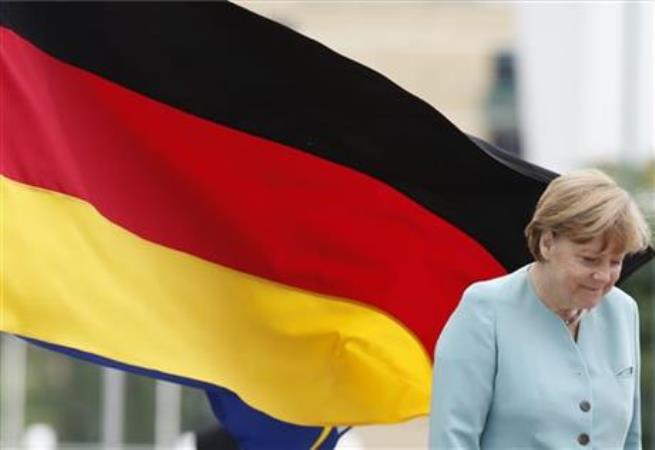Blanchard noted that Greece makes up just 2 percent of the 19-nation eurozone's economy and less than 0.5 percent of the world's economy.
"We continue to hope for and work toward a positive solution by which Greece remains in the eurozone," he says. "There is little question that Greece is suffering and may suffer even more under the scenario of a disorderly exit from the Eurozone. But the effects on the rest of the world economy are likely to be limited."
Meanwhile, Chancellor Angela Merkel has reiterated that Germany opposes an outright debt cut for Greece.
Merkel said during a visit Thursday to the Bosnian capital, Sarajevo, that "a classic haircut is out of the question for me. That hasn't changed between the day before yesterday and today."
Greece has to produce a finalized reform plan by the end of the day. Merkel says she isn't in a position to assess whether that plan will meet creditors' expectations.
Greece is seeking debt relief and the International Monetary Fund argues that the country's massive debt does need restructuring. Germany, though, has resisted calls for debt relief before Greece announces economic reforms.
And, the eurozone's 19 finance ministers are set to meet on Saturday to assess Greek proposals to secure another financial bailout, which would ease the pressure on the country's economy and avoid its potential exit from the euro.
The afternoon meeting in Brussels will also prepare the ground for Sunday's summit of the 19 eurozone leaders, which will be followed by one of the wider European Union, which will involve all 28 leaders, officials said.
Sunday has the feel of being a make-or-break date for Greece. Without a deal, Greece could effectively be left to its own devices by Monday morning. And that could mean the collapse of its banks and the return of the country's ancient currency, the drachma.
In the run-up to the weekend meetings, the mood music surrounding Greece appears to be getting more positive. Markets certainly think so, with the Stoxx 50 index of leading European shares up 2.1 percent Thursday.

